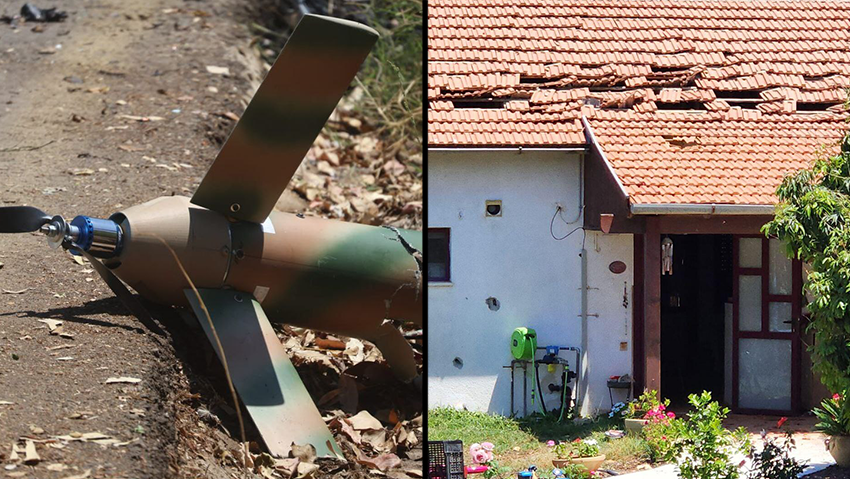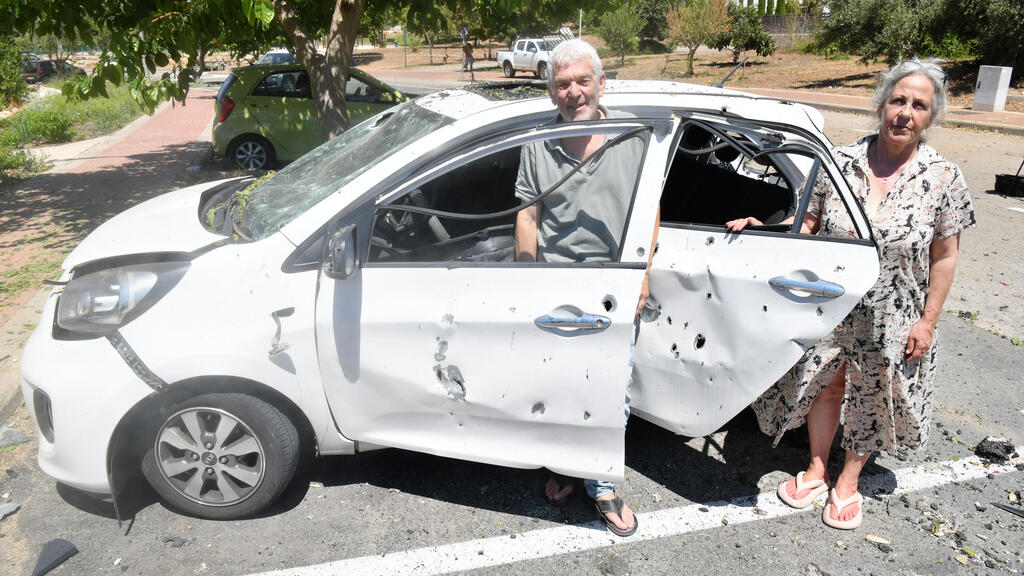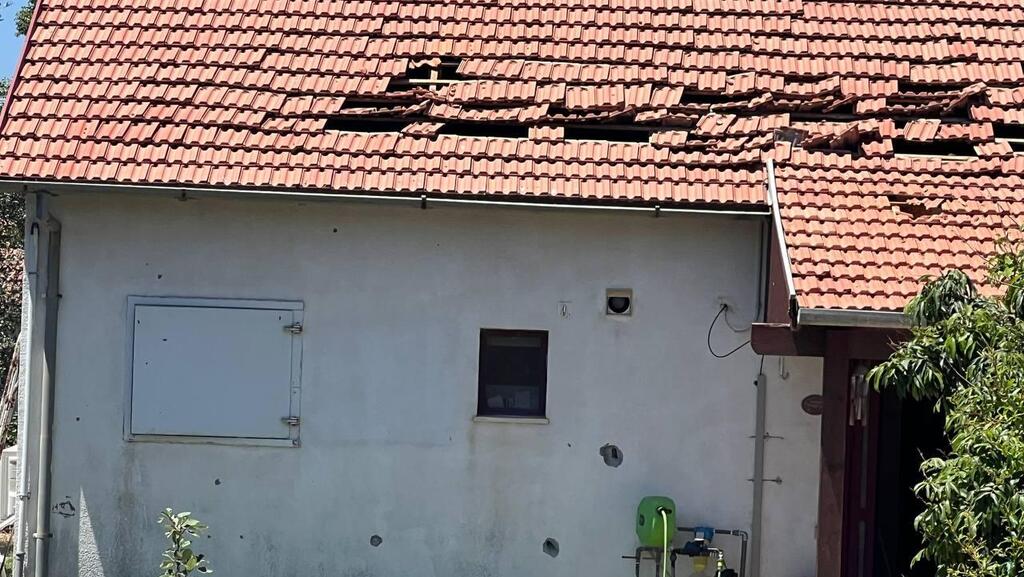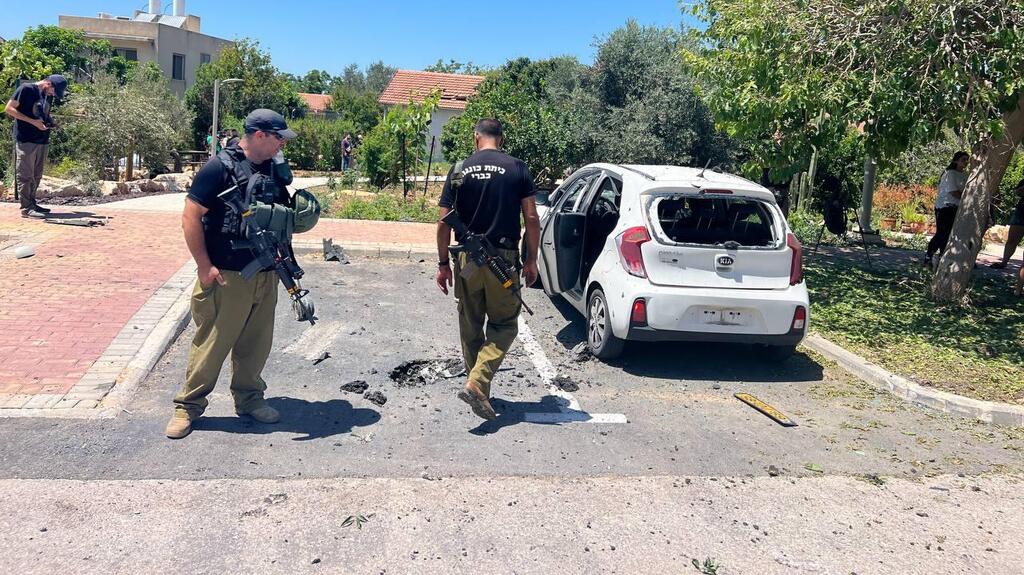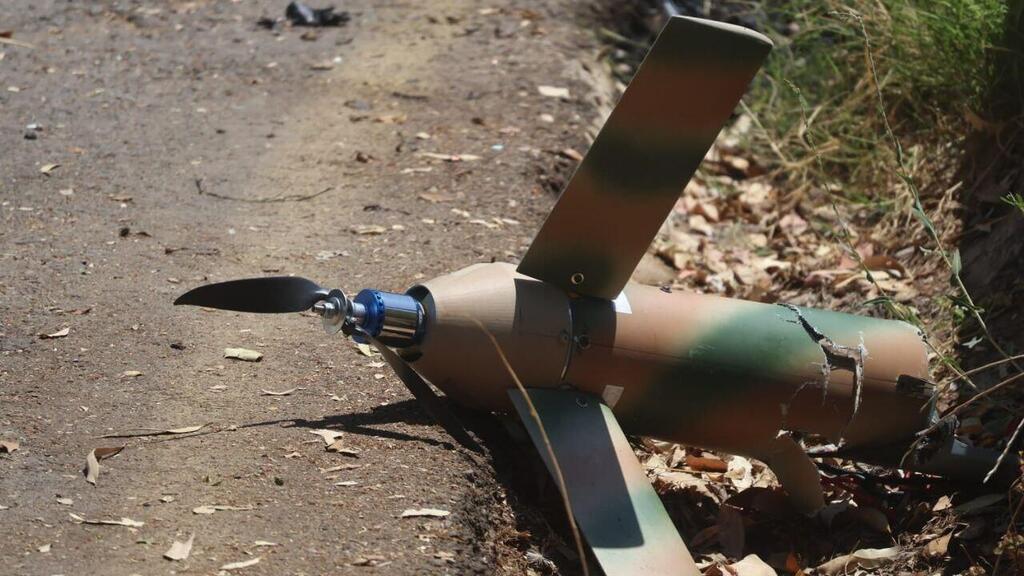Getting your Trinity Audio player ready...
The residents of Kibbutz Kabri in the western Galilee, which has not been evacuated despite the threat from Hezbollah attacks from Lebanon, on Thursday experienced the harsh reality of security threats in the north.
One person was critically injured after several drones crossed from Lebanon and exploded in the area. Debris from the Hezbollah-launched drones was found just meters from the impact site near Nahariya.
"I was in the car with my wife when we heard rocket sirens and ran home," said Kenny Feinstein, a resident of the kibbutz. Moments later, a drone exploded nearby, causing significant damage to his car, shattering its windows.
"We heard a huge explosion; there was damage to the house, and the car was completely destroyed," he recounted. His wife, Ronit, added: "There were many rocket sirens. We got out of the car and ran. It was a close call. This is a routine of hidden tension. It's sad what's happening here."
A local worker, identified only as A., witnessed the event from her office near the drone strike. She described the scene with fear, saying one of her colleagues saw the injured man running toward the shelter, the last in his group to enter. The drone exploded on the ground just as he reached the shelter door, severely injuring him with shrapnel. "Rescue forces struggled to reach the site because the communication network in the area was down," she said. "The drone exploded about ten meters away."
Ravit Shefer, another kibbutz resident, noted that the frequency of shootings and sirens has been increasing. "This morning, we all heard the explosion and knew it was close. It was extraordinary," she said.
"We're not evacuated and live on Israel's northernmost line. All the communities north of us are evacuated," she said. She added that life in the area has become "horrible" since the war. "Hezbollah watches us from their villages and outposts. We must change this terrible war routine. Schools operate under restrictions and in protected areas, making it hard to manage daily life for young children. This has become our routine. Not all residents have shelters; my home has a substandard safe room, and every time I enter it with my child, I pray no one gets hurt," she added.
High school students Adam Nir, Ido Farandian, Itay Sabo and Ido Kenias described their experience were at home when the attack occured. "We were at home when it happened, then sirens started blaring. We ran to the shelter, closed the door, and heard a loud boom. It's worrying; look at what's happening here. It's a miracle people survived. Kabri isn't evacuated, but it's our home, and we're staying," one of the boys said.
Shlomi Salem, a city council member from Shlomi and a leader of the "Fighting for the North" campaign, witnessed the severe impact. "I saw the drone hit. Again and again, we see how the political and military leadership's indecision leads to chaos. People are dying almost daily, and there's no end in sight for a comprehensive war that will restore long-term security. Point strikes in Lebanon won't bring back security for northern residents who see their neighbors killed daily and homes hit regularly," Salem said.
He called for decisive action. "The war in the north has already started. The question is whether the IDF will continue the current state of one-sided attacks or launch an offensive that will end with long-term security. I call on the Prime Minister and Defense Minister: there won't be more opportunities. War, now. A war that will end with a security zone in Lebanon and be worth the months we're out of our homes," he said.
Moshe Davidovich, head of the Mateh Asher Regional Council and chairman of the Conflict Line Forum, said, his residents are under attack.
"Our residents in the Golan, Galilee, and everywhere else are abandoned. Instead of attacking, we are defending. Residents are walking around as cannon fodder to Nasrallah's whims. Where can we go, how far will this go? How many more dead and injured will we see, and when will we know what the plan is? Most government ministers are avoiding the war zone. I suggest they switch homes with northern residents who live without a protected space for two days, and then I’d like to see what the situation looks like," he said.


